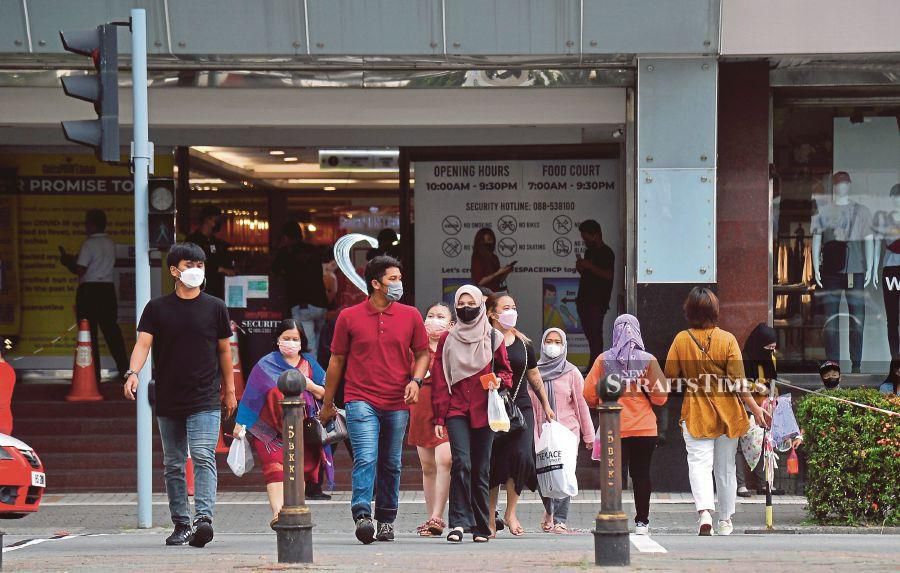A few days ago, Prime Minister Datuk Seri Anwar Ibrahim warned against fanning religious and racial sentiments.
His warning comes as the state of the economy on the ground leaves much to be desired. We cannot ignore the fact that social unrest is linked to economic uncertainty.
This is one of the areas that I studied for my PhD between 2006 and 2010. Allow me to share those views.
The relationship between economic uncertainty and social unrest is complex and can work in both directions.
In some cases, economic uncertainty can lead to social unrest, while in other cases, social unrest can contribute to economic instability.
Economic crises can lead to higher unemployment rates, unstable income, and reduced access to basic needs, such as food, healthcare and education.
These conditions can increase the likelihood of protests, riots, or other forms of social unrest.
On the other hand, social unrest can also affect economic stability by disrupting markets, discouraging investment, and reducing consumer confidence.
Political instability or civil unrest can also lead to decreased foreign investment and increased government spending, leading to higher debt levels and inflation.
In the case of a multi-racial country, studies and experiences of other countries show that economic conditions can play a significant role in social instability.
When the economy is doing well, people tend to be more content and less likely to be inflamed by social factors.
However, when the economy is struggling, people may become frustrated with their financial situations and may turn to social unrest as a means of expressing their dissatisfaction.
Several countries experienced economic-social instability. Greece experienced a debt crisis in the 2010s, leading to austerity measures and significant economic hardship for many people, leading to protests and social unrest.
Chile, in 2019, saw protests over rising inequality and economic instability, sparked by a hike in subway fares, but quickly grew to encompass a broader range of grievances, including high living costs, low wages and inadequate social services.
Malaysia is no exception, and is listed in the academic literature on the issue. Social unrest flared in 1969 as a result of the economic imbalances among ethnic groups.
Although post-independence economic expansion was respectable, it failed to make substantial contributions toward solving economic imbalances.
There are two factors that contributed to the slow rollback of inequality between ethnic groups.
First, little was done to redistribute wealth to the poor. In 1970, about half of the population lived under the poverty line and urban incomes were about twice as high as those in rural areas.
The per capita incomes of the Chinese and Indians were 129 and 76 per cent higher than those of the Malays.
Second, economic power was not reflected in political power. Political decisionmaking was dominated by Malays, while economic activities were run mostly by non-Malays.
From the perspective of the Malays, the continuation of the colonial laissez-faire economy had only ensured increased well-being for the Chinese, but it had not improved the plight of the Malays.
Hence, a more aggressive government intervention was called for to enhance the upward mobility of Malays in education and the labour market.
The Chinese and Indians, however, felt that the government was doing too much for the Malays. This led to the question whether their interests were sufficiently safeguarded in Malaysia.
The disenchantment erupted into the ethnic riots on May 13, 1969.
As a result, economic policies moved away from a narrow focus on growth towards a broader set of objectives, in which both growth and a more equal income distribution featured prominently, as formalised in the New Economic Policies from 1971 to 1990.
The focus is to improve the economic position of the people, especially low-income groups and those affected by the pressure of the cost of living.
Among the main things that need attention are increase in wages, reducing unemployment among youth, creating quality jobs and a more pragmatic cost of living management.
Malaysia can no longer be trapped in a "social paradox" that impedes development and growth.
Respect for the constitution and the promotion of an equitable society are vital for a progressive Malaysia.
The writer is chief economist at the Centre for Future Labour Market Studies (EU-ERA)
The views expressed in this article are the author's own and do not necessarily reflect those of the New Straits Times


